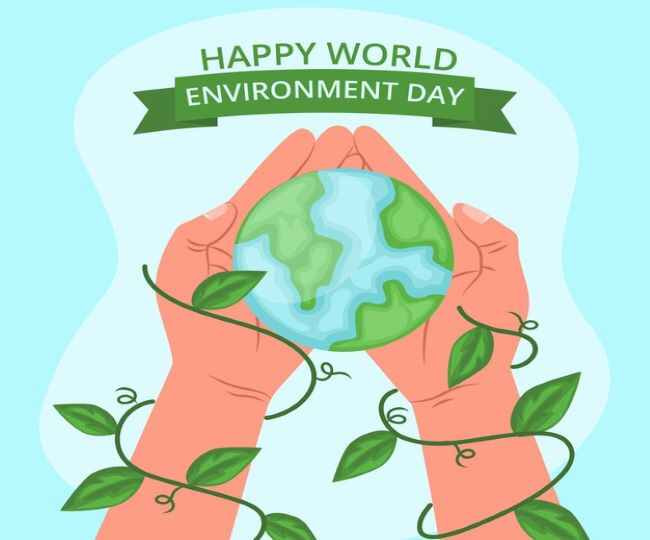Blog by- Chandreyi Sen , a women studies postgraduate student of Tata Institute of Social Science Hyderabad.
Every year, World Environment Day is celebrated on the 5th of June to raise global awareness about pressing environmental concerns and to encourage governments, corporations and individuals to help address these concerns by aligning their actions to the cause of environmental protection. The theme for World Environment Day this year is “Ecosystem Restoration”. Let us try to understand what is ecosystem restoration and also look at some of the possible ways in which you can contribute to this cause.
In the United Nations Environment Programme’s (UNEP) website, “an ecosystem” is defined as “a place where plants, animals and other organisms, in conjunction with the landscape around them, come together to form the web of life”. Farmlands, forests, freshwaters and oceans are some examples of ecosystems. These ecosystems are important to human societies because they are sources of food, water and other basic necessities. Moreover, the livelihoods of billions of people depend on these ecosystems. Many of these ecosystems are also home to diverse species of plants and animals. The importance of ecosystems can be best understood in the event of a natural disaster. For instance, it was observed that when Cyclone Amphanmade landfall in West Bengal in the month of May last year, it caused much less destruction to the Sundarbans delta than was expected due to the presence of the delta’s mangroves. These mangroves, which form a part of freshwater ecosystems, act as a barrier against floods and storms. Despite the important role played by them, many of these ecosystems have been degraded or destroyed due to deforestation, pollution, overgrazing, over-extraction of resources and other such activities. Therefore, the agenda of World Environment Day 2021 is to restore the ecosystems that have been degraded or destroyed and to conserve the ecosystems that are still in a good state.
Let us now discuss some of the things that you can do to help protect and revive ecosystems. The UNEP has designed a guide to ecosystem restoration which suggests ways in which people, communities, organizations and governments can get involved in the efforts to protect the environment. Some of these are as follows:
- Greening your home, workspace, schoolwith plants
- Supporting restoration initiatives by pledging a donation
- Incorporating seasonal, sustainable and plant-rich food items to your diet
- Minimizing purchases of products and services that are not certified as sustainable
Sustainable consumption is an important aspect of the ecosystem restoration project. One of the ways in which you can ensure sustainable consumption is through minimizing the use of disposable plastics. Plastic straws, plastic cups, plastic cotton buds and menstrual pads and tampons are just some of the products that are made up of disposable plastic. In the paper titled, “Unsustainable Management of Plastic Wastes in India: A Threat to Global Warming and Climate Change”, Vishwakarma (2019) has pointed out that “major part of plastics become a waste on landfill”. It takes almost 800 years for these plastics to decompose and the “disintegration of plastics gives off powerful greenhouse gases” that contribute to climate change (Vishwakarma, 2019). If we talk about menstrual products in particular, the use of plastics is not limited to the making of the products. Thanks to the stigma and shame surrounding menstruation in our society, many shopkeepers continue to wrap sanitary pads in a plastic bag before handing them to the customer and when it comes to disposing the pads, plastic bags again come in handy. Therefore, for menstruation alone, we are hugely dependent on plastics. However, in recent years, many menstruators have shifted to more sustainable options like menstrual cups and reusable pads to manage their menstruation.
At Anahat, there has been a sustained effort to promote sustainable menstrual hygiene options. Anahat Unnati reusable cloth pads are made up of 100% cotton fabric and multiple layers of flannel are used as absorbent and PUL (laminated fabric) are used as a leak proof material. These pads can be washed and re-used for up to 3 years. So, if you have been thinking about switching to sustainable menstrual products, go ahead and check out the range of Anahat Unnati Pads here- https://anahatngo.org/unnati-pads/
As we celebrate World Environment Day from our homes this year, let us try to acquire a good understanding of our local ecosystems, let us rethink our actions and choices and let us strengthen the foundations of our own well-being by ensuring good planetary health.


